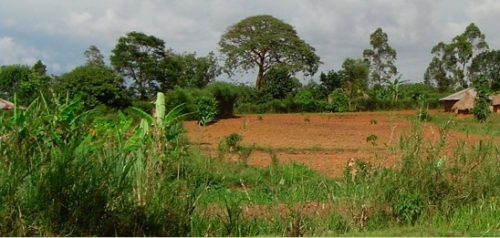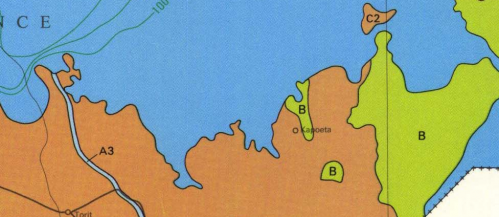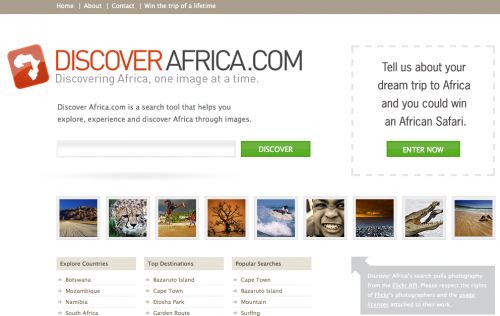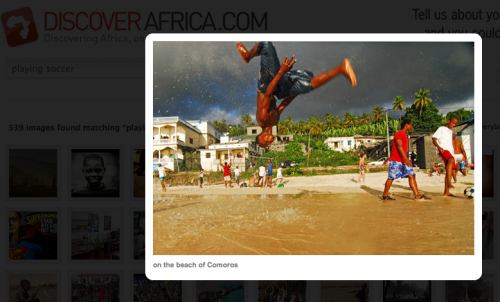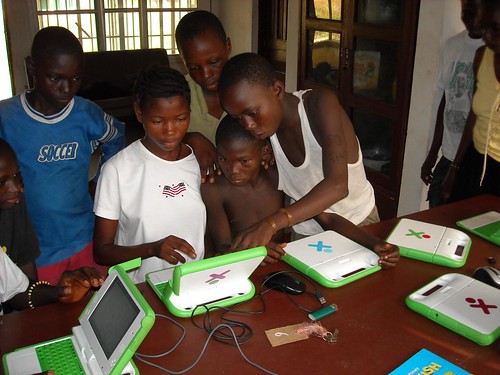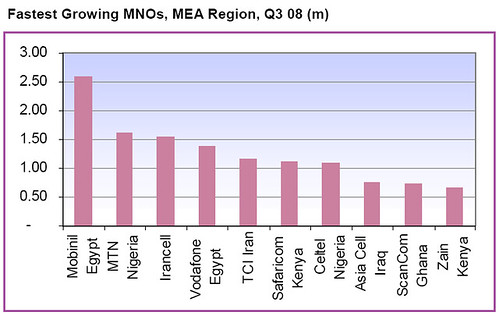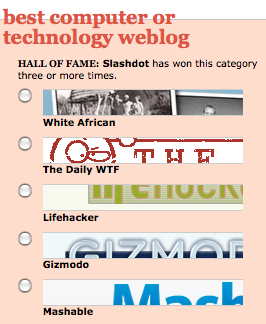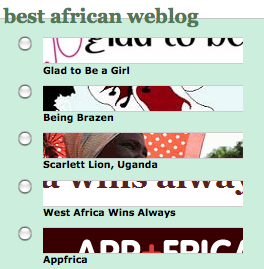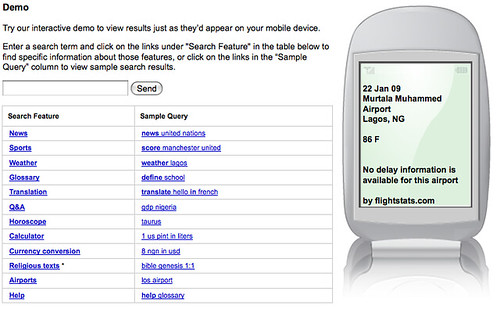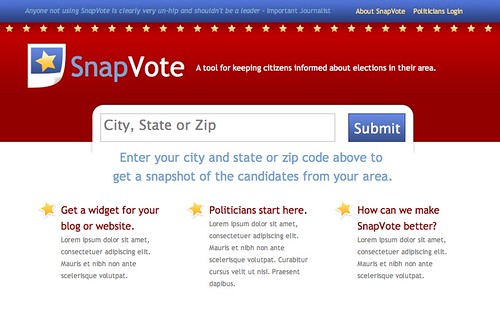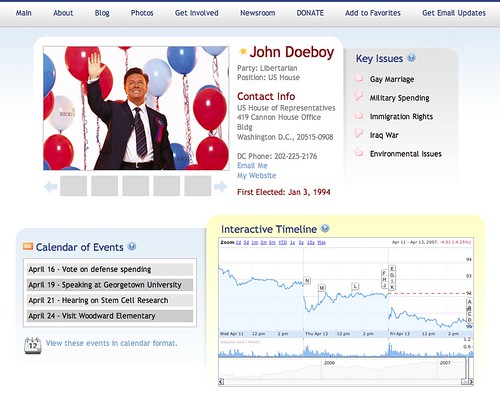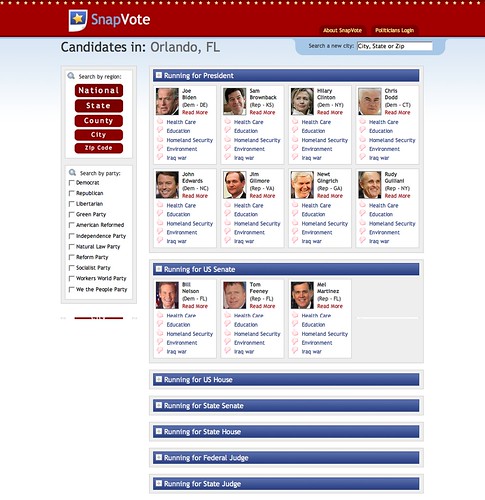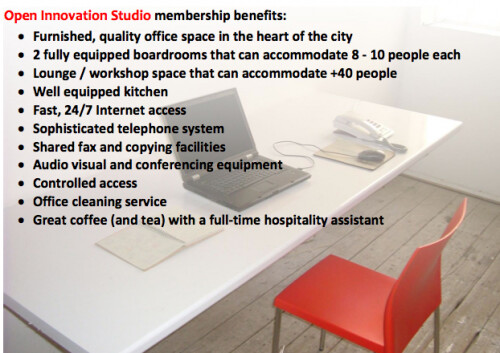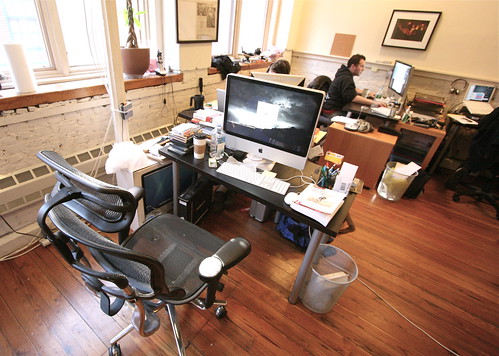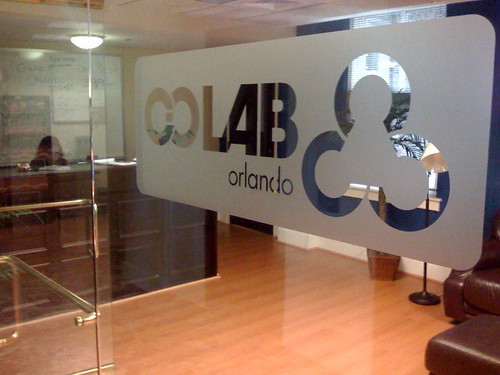WhiteAfrican
Where Africa and Technology Collide!
Page 39 of 109
I came across the Sunlight Foundation’s “Apps for America” contest last week, and it reminded me of a side-project that I started that never got off the ground a couple years back. Add in today’s US Presidential inauguration and it was just too much for me not to share this idea. I’m now too busy with Ushahidi to do this, but I think it could be a good candidate for this competition, and I hope someone builds it.
History
Just over two years ago I was thinking about the upcoming US national elections and of building a web application that would be useful to the general public and which also had some business potential. I sat down and drew out an idea I thought had a lot of merit, and I actually sat down with two really smart people (Meagan Fisher and Jason Hawkins) and we ended up concepting most of the app. However, there was no code laid down, just a lot of background work trying to understand the feasibility, market and data.
It was called SnapVote: A tool for keeping citizens informed about elections in their area
What is SnapVote?
We wanted SnapVote to be the easiest way for Americans to ï¬gure out whom to vote for in any political race. The name came from the idea that voters could get a snapshot of politicians, races and platforms before they voted.
We were going to provide a party-agnostic snapshot of who was running for ofï¬ce in each person’s area, voters would be informed in less time and with less hassle than ever before. Every politician who was running for public ofï¬ce would have a default proï¬le on SnapVote, which could be upgraded for a small fee and that would allow the politician to have their own space on the web.
What’s the problem?
- There’s a lot of noise around election time
- Most of us are “lazy voters†who don’t really know who to vote for
- We’re getting told what the issues are
- Politicians have horrible websites that are hard to find
What’s the solution?
- Quickly get a snapshot of who is running for office and what they stand for
- Weigh in on the issues that YOU think are important – users decide
- Every politician has their own website and can upgrade it for more features
- Politicians get a snapshot (weekly/monthly) of the issues that are important to their constituents
What does it do?
- A database of candidates for office at the federal, state and local levels
- Aggregate user voting determines what issues are important for each constituency
- Politicians can use Snapvote as their primary communication, fundraising and volunteer platform
The Objective
SnapVote was going to be the primary source of consumer information about politicians. From the President to the local dogcatcher, anyone who ran for public ofï¬ce would be accounted for. It would also serve as the primary website for information on any speciï¬c politician and created a website for each one.
The Opportunity
SnapVote is in a position to be a ï¬rst-mover in a fairly competitive-free space. 122 million people voted in the 2004 national elections, this is SnapVote’s constituency. Providing an easy-to-use tool that makes even the laziest of voters appear ready for Election Day is the goal. Secondarily, the proï¬le for each politician will cost a fee to be upgraded. That number becomes quite large once you move past US President and Congress and start accounting for governors, mayors, city councils and congressmen for each state’s legislature. Initial income would come from politicians taking charge of their proï¬les on SnapVote. Other revenue opportunities would include aggregate data reports that could be sold to study groups, businesses and politicians.
More ideas
There was a lot more behind SnapVote, including aggregating people’s views on different political issues and politicians themselves. This data could be used to help individuals find politicians they shared the most in common with – especially for local elections. It also would come in handy for politicians, knowing what was being hot (or not) at the grassroots level.
As you can see from the mockup design work, there were also some thoughts around creating ways for politicians to raise donations and money easier, to plug into other social networks, events and getting people involved in their campaigns.
The biggest challenge is gathering the data on politicians running for office in local elections. As I called the different departments and organizations that handle this information around the country, I found that almost every state had a different set of rules for getting that data, and it was in a multitude of formats.
© 2025 WhiteAfrican
Theme by Anders Noren — Up ↑
